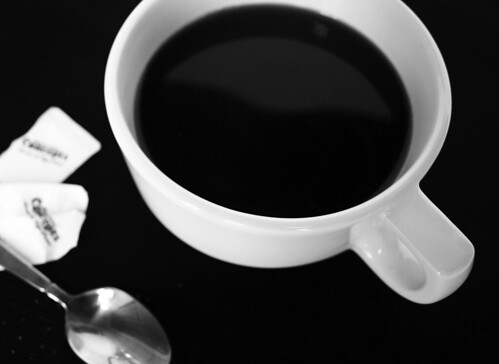 |
| Photo by Sarah Fleming on Flickr |
Consuming an excessive amount of caffeine puts an enormous strain on the liver, can negatively affect sleep patterns and increases cortisol levels -- all of which contribute to fat gain.
You may have heard that there are some health benefits associated with coffee. Some research shows that coffee may have some benefits such as lowering the risk of certain cancers. But the caffeine in coffee can have adverse effects on weight loss.
It is wise to limit caffeine consumption from coffee and soda, here's why:
Taxing on the liver. The liver metabolizes the food we eat and is our main fat burning organ. The liver also metabolizes caffeine breaking it down so the body can process it. Consuming large quantities of caffeine can be burdensome to the liver. An optimally functioning liver is ideal for efficient food metabolism. Limiting caffeine consumption in order to reduce the burden on the liver is beneficial for weight loss.
Raises cortisol levels. Cortisol is a stress hormone produced by the adrenal glands in response to stress. Cortisol taps into fat stores to use as energy under stress and moves fatty acids to another location such as muscle for energy. But if that fat isn't used up, it gets stored again but usually as belly fat. This is because there are a greater number of fat receptors in the abdominal region. A study done in 2005 by the National Institutes of Health found that caffeine intake increased the secretion of cortisol.
Can disrupt sleep patterns. Insomnia is a sign that your diet may contain too much caffeine. When caffeine is consumed, norepinephrine and epinephrine is released -- stress hormones that act on the brain and nervous system. Working together they increase heart rate, blood pressure and cause that jittery feeling often making sleep difficult. Getting too little sleep can raise cortisol levels resulting in the problems listed above.
Resources:
National Institutes of Health
MedicineNet
Mayo Clinic
Mercola
Scientific American

No comments:
Post a Comment